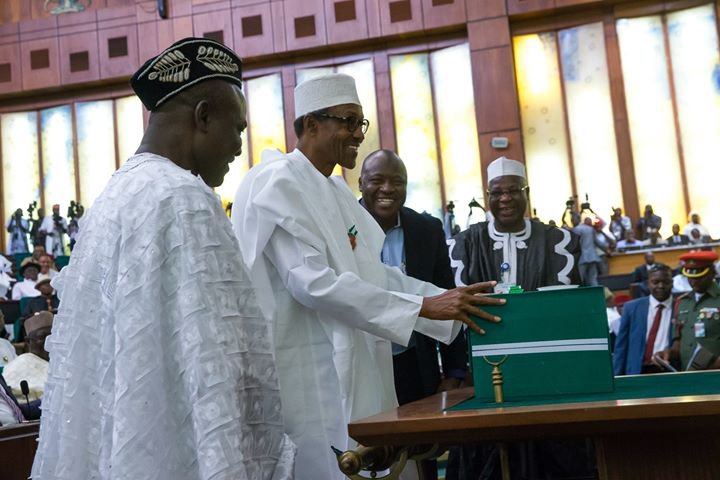
 When President Muhammadu Buhari on May 6th signed the 2016 appropriation bill into law, it doused tensions and raised the expectations of most Nigerians that better days are ahead.
When President Muhammadu Buhari on May 6th signed the 2016 appropriation bill into law, it doused tensions and raised the expectations of most Nigerians that better days are ahead.
Truly, the N6.6 trillion dubbed the” budget of change” by Mr. President remains a milestone in the annals of budget making for obvious reasons. For instance, this is the first time that 30% of the National budget will be committed to capital expenditure. Similarly, this was the first in modern Nigeria, where the National Assembly reduced the amount of the proposed budget submitted by the Executive instead of scaling it up as has been the norm in the past.
However, my concern and that of many Nigerians is in view of the prevailing economic realities in the nation, how can government crystallize these noble projects in the budget to concrete reality? Given our past experiences in budget implementation, successive administrations have failed to effectively implement the budget to affect the lives of Nigerians, even in “boom period” owing to absence of Result- based Monitoring and Evaluation mechanism in tracking budget implementation and performance.
Therefore, to ensure the “budget of change” delivers on its set goals and impact positively in the lives of Nigerians, the President must ensure that things are done differently now through a deliberate mechanism and plan to track implementation of the 2016 budget, using modern monitoring and evaluation system.
Budget tracking enables Government and its stakeholders to examine the flow of public funds from the point of disbursement to the point of utilization, as it helps to identify funds breakdown as well as cases of mismanagement and corruption within the budget implementation chain.
Interestingly, the Minister of State for Budget and National Planning Mrs. Zainab Ahmed has come out with the Monitoring and Evaluation(M&E) framework for tracking the 2016 budget implementation. She said recently that budget tracking and implementation plan will be anchored nationally by the ministry of Budget and National Planning with the Department of Planning Research and Statistics in the MDA’s coordinating tracking in the individual ministries.
This arrangement is highly commendable, as the M&E framework is a portent tool for ensuring that budgetary inputs give rise to the expected outcomes and bring about desired impact on the society. However, Government should go beyond official pronouncement to enthrone a culture of Monitoring and Evaluation in the MDAs. It must develop a realistic, thorough but simple result-based strategies to trap and track fiscal spending in the 2016 Budget plan.
An urgent review of the National Budget performance Reporting template is therefore recommended to ensure that critical aspects of the budget implementation which will help provide a true and up-to-date progress on the proposed activities and projects in the budget are concentrated on.
More importantly, efforts must now be geared towards restructuring the MDA’s to establish Monitoring and Evaluation (M&E) Units. Presently, capacity for carrying out result based monitoring and evaluation in the MDA’s are lacking. This is why successive governments have failed in building reliable data for effective tracking and implementation of the budgets.
In addition, since the national budget is an instrument of public accountability, Government must set up a mechanism to involve reputable civil society organizations and the media who are experienced in the area of monitoring and evaluation, to track, monitor and report progress on the projects from scratch to finish.
Importantly, members of the National Assembly while carrying out their oversight functions, should as a matter of policy, work with the national development framework for monitoring and evaluation. This will help in building a reliable data that will enable it do a good post mortem on budget implementation. Such synergy would make words like “budget padding” disappear finally from our economic and political lexicon, because result based M&E makes for learning and decision making.
Already, the effective implementation of the Treasury Single Account policy by the Office of the Accountant -General of the Federation ( OAGF) will be pivotal to tracking of the funds in the MDAs. The AOGF has assured that the release of cash backing and warrants for all government spending must be evidence based, as the Treasury under his watch will ensure that every kobo is well accounted for.
Undoubtedly, if Government implements the 2016 Budget, by ensuring that there is a systematic tracking of the funds to the actual projects, the 2016 budget will indeed signal the birth of a New Nigeria.
IFEANYI OKEREKE
COMMUNICATIONS OFFICER
